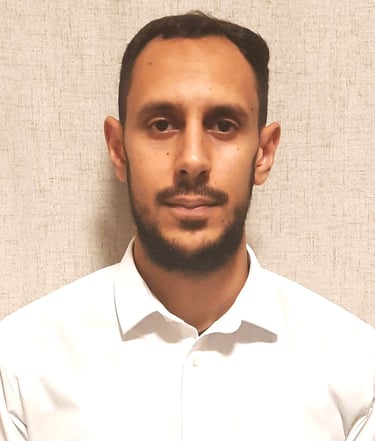Dr Usama Mohamed joins Seratech as Senior Process Engineer
By Natasha Higgins
2/25/20242 min read
Seratech is delighted to welcome Dr Usama Mohamed, in the role of Senior Process Engineer, to the team. Usama, who has a background in Chemical Engineering, will lead the scale-up of Seratech’s process starting with software modelling techniques and carrying this through to a fully operational pilot facility.
As Usama points out, “Cement production contributes to 8% of annual global CO2 emissions and there’s still not enough happening to decarbonise the industry and make it carbon neutral. Any technology that can help or support this goal, will play a pivotal role in achieving net zero UK by 2050. Unique to Seratech’s technology is that it decarbonises cement while also making use of CO2 emissions from any plant by producing a new range of building materials. It cleverly balances the economic and the environmental aspects when it comes to solving the problem of CO2 within the cement industry”.
Usama brings with him a wealth of knowledge having worked as a research fellow at the Faraday Institution of Industrial Research as well as holding a PhD in Mechanical Engineering from the University of Sheffield. It was his Master’s degree, however, with a focus on mineral carbonation, that led to the work he does now.
“As a Process Engineer you are required to map out the entire production process starting with a model, right through to the final commercial product of whatever you are creating. This helps us look at the efficiencies of the process, the equipment we will require to eventually produce large batches and the calculations in terms of costs i.e. what the process will cost to run and how much we will be spending on the pilot plant.
“I always say the role of a chemical engineer is to take what chemists do on a smaller scale and mass produce it”.
For now, Seratech’s process is happening on a small scale out of labs at Imperial College London to provide kilograms of material for testing. Once the pilot plant is fully operational, however, they will be looking at sequestering four tonnes of CO2 per week in a continuous process.
Usama is excited to be part of something that has so much potential: “I'm looking forward to what we can achieve now that we know the technology is feasible and can reach a commercial stage. I'm eager to see where this things go in the next few years and how you would compete with competitors in the field to solve the cement industry’s carbon crisis. From the start, when I saw Seratech’s technology, I found the process really interesting. I'm hoping to play a part in bringing this technology into the world”.


